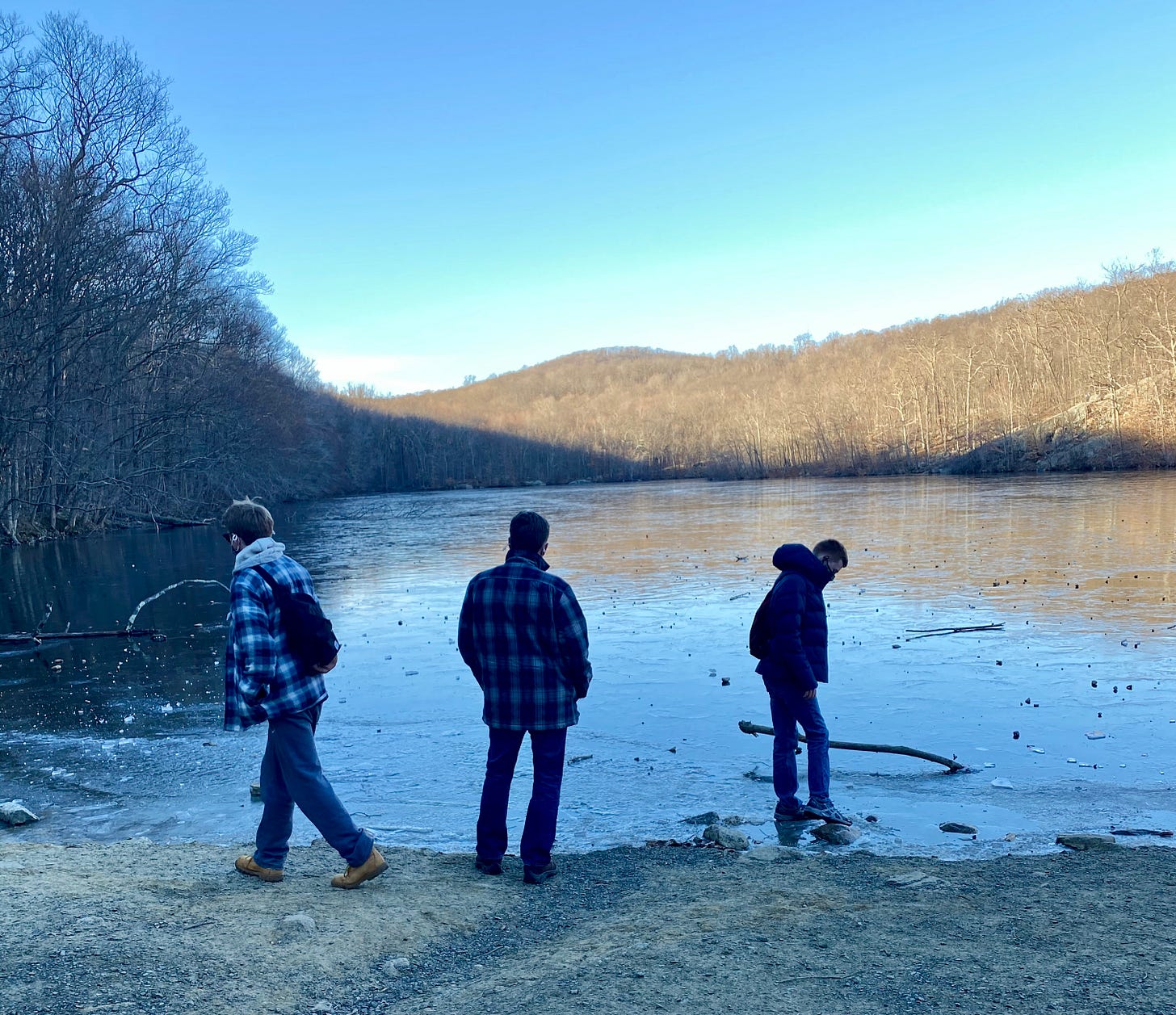The Caretaker Advantage
Yesterday, about 30 minutes before I was about to join a webinar about the pandemic relief for schools, I got a frantic call from my mom.
She couldn’t figure out how to sign-up for the vaccine. The website at the local hospital asked that my folks attach a picture of their insurance cards. When she handed the phone over to my dad, I told him to take a picture of the card with his cell phone, but he couldn’t manage to send the picture as an attachment to his email. I had to jump off the phone at that point, so my sister took over.
As it turns out, my folks weren’t even on the right page for the vaccine sign up. Between my sister and I, we were able to get them on some lists. When I’m done with this newsletter, I’m going make sure that I did it all correctly.
My folks are in their mid-80s, so navigating websites and uploading .jpg images is not their strong suit. (They’re not alone.) After ranting on Facebook, my friends chimed in with their own stories. One friend from New York said that she didn’t act fast enough, so her mom isn’t going to vaccinated until April, even though younger, all-remote workers were already getting vaccinated. Another friend from Jersey said that the smokers were getting vaccinated before seniors here. Most of us didn’t even have a date for our parents yet. Almost of us have had to step in to help our parents, because the sign-up system was too complicated for them.
This pandemic has exacerbated inequities. It’s now a hackneyed observation, but it’s still true. In this case, seniors with support from their children are going to get vaccinated; maybe not as quickly as they should, but it will happen. Those who don’t have that help might get COVID and die, before they can get vaccinated. Seniors with involved and caring children will live through this spring.
When I wasn’t helping my parents with the tech problems, I had other caretaking responsibilities this week.
I spent two hours on a Zoom call with Ian’s school district trying to negotiate for more in-person activities during his IEP meeting; he’s been dreadfully isolated since last March, and there’s no way that the school district is meeting his speech and social skills needs this spring. Right now, I’m just pleading for help, but lawyers might be needed down the line.
Steve and I drove him to various private centers that can offer him some interaction with other human beings. This pandemic has been brutal on people with autism, so we’ve worked really hard to make up for the devastation of remote education with extra family activities and private services.
The day before, I dragged Jonah to the library with me, where I picked up a book about the history of deaf education. On the ride, we talked through his schedule for the spring semester; his college does a poor job with student advisement, so I’ve taken over that job. We talked about the pros and cons of impeaching Trump now. Wearing my political science professor hat, I used our wide-ranging conversation to remind him about concepts like the weak American party system, the primacy of constituency demands on elections, and how the presidents need to get their most important policy issues done in the first 100 days. With remote education, he has no opportunities to have those spontaneous hallway conversations with his professors, so I filled that gap.
My family is going to survive this pandemic. We’ll have some bumps and bruises, for sure. But the kids will finish school, and my parents will get vaccinated. They have the Caretaker Advantage.
I’m not the only person who has been providing this help. Steve’s working from home, so he can drive Ian to his therapist and to SAT tutoring. My sister and my brother are helping my folks, too. There’s an entire team helping the vulnerable people in our extended family.
When the dust settles, when we assess who struggled and who survived, I’m sure that we’re going to find that the survivors had the Caretaker Advantage. And then we will have to figure out how to build a world where we both reward the efforts of caretakers and, at the same time, provide extra help to those who don’t have that advantage.
Parenting Tip: Car trips are an excellent time to converse with teenagers. They are strapped in and can’t bail on uncomfortable topics.
One More Parenting Tip: Block out one day each weekend for mandatory family time. Mask up and go to a new restaurant for apps and drinks. Or go to the local park and walk around for a while.
On the blog: As coverage of the Great Crazy Rampage of the Capital unfolded, it has become clear that events were more violent and coordinated than we originally understood. It’s time to revisit the notions of information echo chambers. More at the blog.
Reading and Watching: We finished the Netflix Bridgerton Series, and I was disappointed. It’s too far away from the spirit of the books for me, although the costumes and the sets are fabulous. So, I reread the whole series last week, when I was COVID quarantining. We started Peaky Blinders and the second season of Babylon Berlin — same story, same years, different accents.




